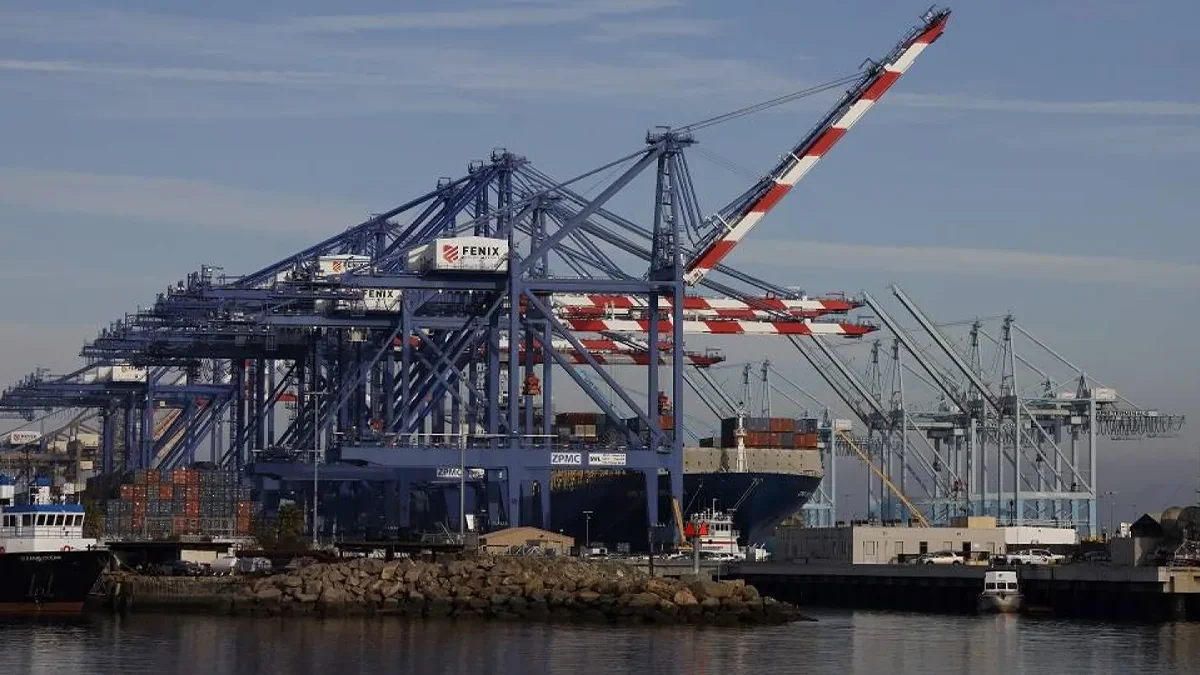Necessary Always Active
Necessary cookies are required to enable the basic features of this site, such as providing secure log-in or adjusting your consent preferences. These cookies do not store any personally identifiable data.
|
||||||
|
||||||
|
||||||
|

China has slapped the US with import tariffs as trade war between the two countries intensifies, Yahoo Finance reported. China’s tariffs on US goods was a swift reaction to the 10% duty imposed by America on Chinese imports.
The US announced additional duties on Chinese goods after Trump accused Beijing of not taking sufficient action to stop the flow of illicit drugs. China responded within minutes. The Finance Ministry in the Asian country announced a 10% tariff on US crude oil, specific autos, and farm equipment.
The ministry also imposed a 15% tariff on US liquified gas and coal. The Chinese tariffs on US coal and LNG will take effect on February 10. At the same time, the Commerce Ministry of China and the Customs Administration have announced plans to impose export controls on rare earth metals, including tellurium, tungsten, bismuth, indium, and molybdenum.
The two government ministries said the controls are aimed at safeguarding China’s national security interests. China is the biggest supplier of rare earths in the world. Rare earths are critical in the transition to clean energy.
Trump started a fierce trade war between the US and China in 2018. The war, which lasted for two years, was triggered by a high US trade surplus. Beijing responded to punitive tariffs imposed by the US on Chinese goods in 2019. This China-US trade war affected the global supply chains and affected the world economy. Drug trafficking is at the center of Trump’s trade policy with China. The US President has warned that he could slap China with additional tariffs unless the country curtails the flow of fentanyl into the US. Fentanyl is a deadly opioid.
“China hopefully is going to stop sending us fentanyl, and if they’re not, the tariffs are going to go substantially higher,” Trump said on Monday.
But China says it will challenge new duties at the World Trade Organization. The country argues that fentanyl is a US problem and has promised to counter the tariffs. The country says it’s still open to talks. Compared to the 2018/19 trade ware, the stakes are higher now. In 2024, China imported 4.16 million tons of LNG from the US. This is almost double the amount it imported in 2018.
It has emerged that the two countries could be working on a solution after the timing for talks between President Trump and President Xi Jinping was escalated. The conversation between the two had been scheduled later this week. However, it’s likely to take place within the next 24 hours.
On February 3, Trump suspended his decision to impose a 25% tariff on Canada and Mexico. This happened after the parties agreed to a 30-day pause in order to bolster enforcement efforts on the border. Experts say it might be harder for the US and China to agree on a deal.
“Unlike Canada and Mexico, it is clearly harder for the U.S. and China to agree on what Trump demands economically and politically. The previous market optimism on a quick deal still looks uncertain. Even if the two countries can agree on some issues, it is possible to see tariffs being used as a recurrent tool, which can be a key source of market volatility this year,” Gary Ng, Senior Economist at Natixis said.
China has also announced that it will commence an anti-monopoly investigation on Google. The Chinese regulatory watchdog, State Administration for Market Regulation, said it will be investigating Google for possible violation of the country’s anti-monopoly regulation. Google stopped providing search engine and internet services in China back in 2010.
However, the tech giant runs some operations in the country. These include supporting Chinese businesses that seek to advertise abroad through its platforms. As the Chinese government launches its probe on Google, some experts believe the exercise could conclude without any fines.
Google isn’t the only US company that the Chinese government will be investigating. China will also probe biotech firm Illumina for an unreliable entities list. The Asian economic giant will also be investigating PVH Corp, the company that holds brands like Calvin Klein.